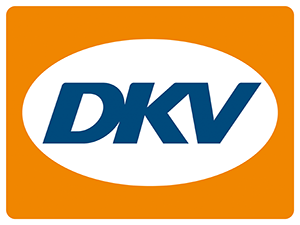How to keep your international fuel costs under control

Transport companies face ever-rising fuel expenses, especially when operating across international borders. From fluctuating prices to regional taxes like excise duties, controlling fuel costs is a significant challenge. However, there are ways that can help manage these expenses. By carefully planning where and when to refuel and taking advantage of excise duty refunds, companies can significantly reduce their fuel expenses.
Key considerations for refueling Abroad
The good news is that many European countries such as Belgium, France, Italy, Spain, Croatia, and Slovenia, transporters can reclaim a significant portion of these excise duties.
Here are some important points to keep in mind:
- Excise duty refunds: Fuel excise duty is a specific tax on fuels like diesel and gasoline, intended to regulate usage and cover environmental costs. Depending on the country, it can amount to as much as €0.20 per liter. Taking advantage of excise duty refunds in eligible countries can significantly reduce overall fuel costs in Europe.
- Price variations by country and time: Fuel prices can vary widely between countries and even within a single day. Refueling in some countries at certain times, such as late evening or early morning, can result in savings. In Germany, for instance, prices are typically higher between midnight and 9 a.m.
- Provider networks: Using a mobility provider's fuel network can ensure access to a wide range of fuel stations, helping you get the best prices across different countries.
How to reclaim fuel excise duty abroad
Excise duty refunds can represent a significant cost-saving opportunity: for example, in Belgium, you can reclaim up to €60 per refueling for 300 liters of diesel in the best case. To qualify, vehicles often need to meet certain conditions, such as a minimum allowable weight (typically 7.5 tons or higher), and payments must generally be made using a fuel card, credit card, or bank card – cash payments are not usually eligible.
As a transport company, you can reclaim excise duties by filling out forms yourself and submitting them to the foreign tax authorities. This can be a time-consuming process. The refund process typically involves providing documentation such as:
- Copies of fuel invoices
- Vehicle registration certificates
- Rental or lease contracts (if applicable)
- Energy product permits
- Declarations permitting tax authorities to audit accounts
While this process can be time-consuming, it can result in substantial savings if done properly. The key is ensuring all documents are complete and accurate, as errors can delay refunds.
Simplifying Excise Duty Refunds with mobility service providers
For companies looking to streamline the excise duty refund process, mobility service providers such as DKV Mobility offer a comprehensive solution. By using a service card, the entire refund process is handled on behalf of the transport company, saving complex paperwork and administrative burdens.
Companies can also receive assistance with the refund of foreign VAT, which is particularly valuable for firms with regular deductible expenses abroad, such as road tolls. By taking over the VAT refund process, the need to deal with foreign tax authorities is eliminated. With the Express Service, VAT refunds can be applied directly to the next invoice, ensuring that companies can see immediate savings.
Managing fuel costs across borders involves implementing smart refueling strategies, understanding excise duty refund opportunities, and leveraging the right tools and partners. By carefully planning refueling stops and leveraging services, transport companies can significantly reduce their international fuel expenses.
